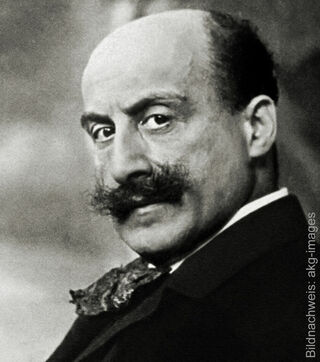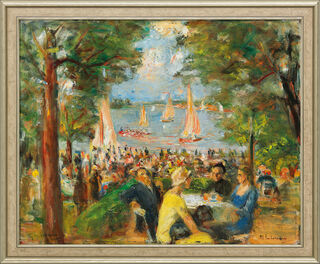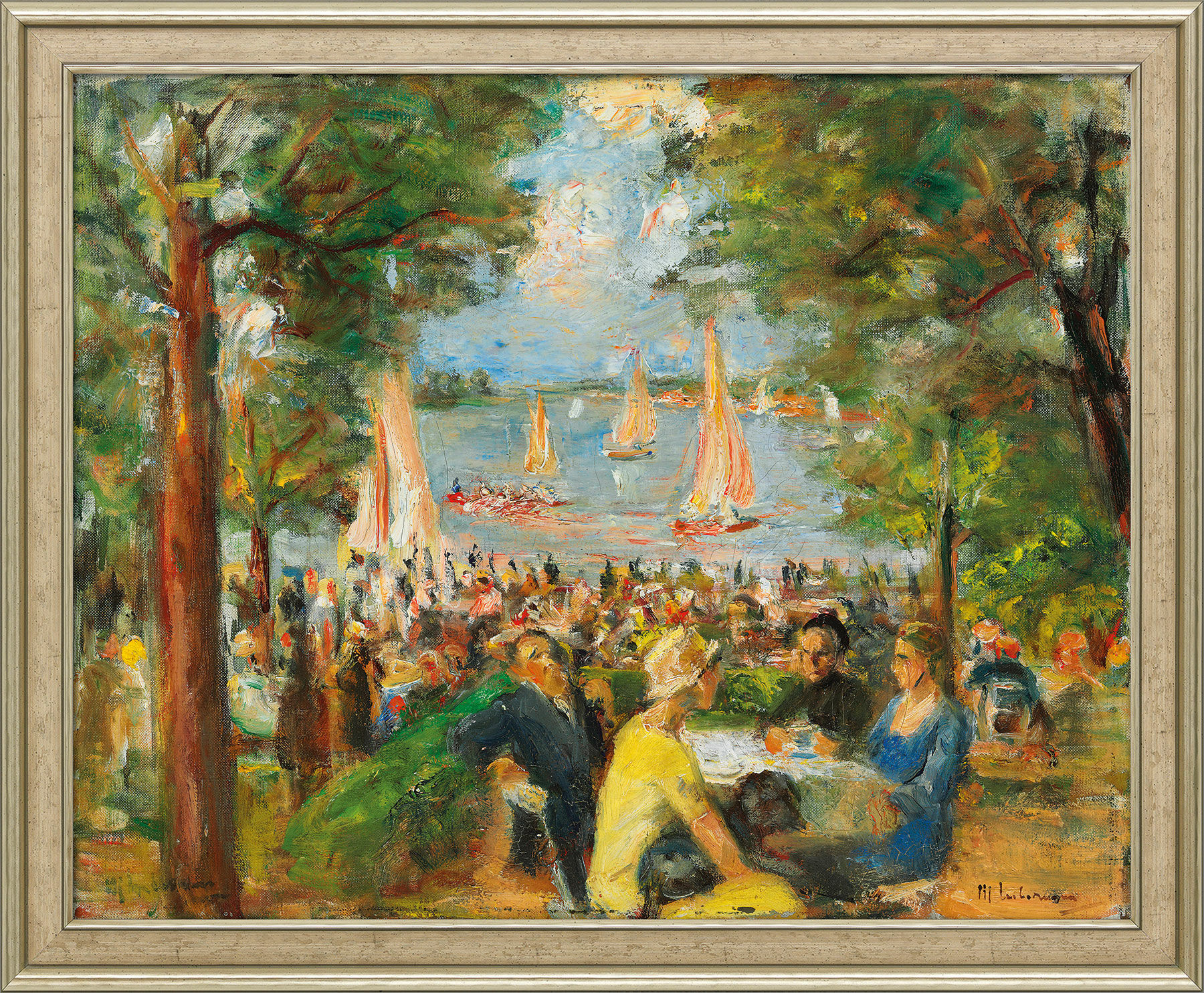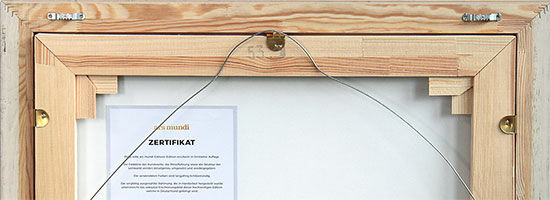Picture "Beer Garden Near the Havel" (1934), framed


Picture "Beer Garden Near the Havel" (1934), framed
Quick info
limited, 980 copies | numbered certificate | reproduction on canvas | on stretcher frame | framed | size 61 x 74 cm (h/w)
Detailed description
Picture "Beer Garden Near the Havel" (1934), framed
Max Liebermann found many of his outdoor motifs in the area surrounding his native city of Berlin. The most important German Impressionist artist portrayed the bourgeois society and nature with a more passionate stroke and making use of the bold areas of light and colour.
Original: 1934, oil on canvas, 40.6 x 50.5 cm, private collection.
Edition on artist's canvas with linen structure on wooden stretcher frame. Limited edition of 980 copies, numbered certificate on the back. Framed in white and golden solid wood frame. Size 61 x 74 cm (h/w).
Frame configurator
Customised picture frame

Frame configurator
Customised picture frame







About Max Liebermann
1847-1935
Together with Lovis Corinth and Max Slevogt, Max Liebermann formed the triumvirate of German Impressionism and received numerous honours throughout his life. Through his commitment to elevating the life and work of ordinary people to art in unpretentious simplicity meant that Liebermann initially had to fight for recognition.
Liebermann only became a celebrated painter at the turn of the century when he increasingly devoted himself to motifs and scenes from the life of the upper-middle classes. He was an appointed professor at the Royal Academy and a member of the jury at the Academy exhibitions in 1897. In 1899 he founded the Berlin Secession and made it the most important German art institution. In 1920 Liebermann became president of the Prussian Academy and in 1932 its honorary president.
Because of his Jewish ancestry, he was ostracised by the Nazis and forced to resign from all offices. While watching the Nazis celebrate their victory by marching through the Brandenburg Gate from the window of his flat Liebermann supposedly said: "I can't eat as much as I want to vomit." In 1935 he died at the age of 87 after a long illness.
For Max Liebermann, nature was always a man-made (and man-inhabited) paradise. He found his motifs in gardens, parks and in bourgeois places of amusement. Liebermann is a master of staged light, which he lets fall on his scenes, often filtered through a canopy. The individual beams of light that penetrate to the ground are striking and have gone down in art history as "Liebermann's sunspots".
Depiction of typical scenes from daily life in painting, whereby a distinction can be made between peasant, bourgeois and courtly genres.
The genre reached its peak and immense popularity in Dutch paintings of the 17th century. In the 18th century, especially in France, the courtly-galant painting became prominent while in Germany the bourgeois character was emphasised.
The style of Impressionism, which emerged in French painting around 1870, owes its name to Claude Monet's landscape 'Impression, Soleil Levant'. After initial rejection, it began a veritable triumphal procession.
Painters such as Claude Monet, Edgar Degas, Edouard Manet, Auguste Renoir and others created motifs from everyday life, urban and landscape scenes in bright, natural light.
Impressionism can be seen as a reaction to academic painting. The emphasis was not on content with its strict rules of painting structure, but on the object as it appears at any given moment, in an often random cut out. The reality was seen in all its variety of colours in natural lighting. The Studio painting was replaced by open-air painting.
Through the brightening of the palette and the dissolution of firm contours, a new approach to colour emerged. In many cases, the colours were no longer mixed on the palette but side by side on the canvas so that the final impression lies in the eye of the viewer with a certain distance. In "Pointillism", (with painters such as Georges Seurat or Paul Signac) this principle was taken to the extreme.
Outside France, Impressionism was taken up by painters such as Max Slevogt, Max Liebermann and Lovis Corinth in Germany, and by James A. M. Whistler in the United States.
However, Impressionism was only expressed to a limited extent in the art of sculpture. In the works of Auguste Rodin, who is considered one of the main representatives, a dissolution of surfaces is evident, in which the play of light and shadow is included in the artistic expression. Degas and Renoir created sculptures as well.






